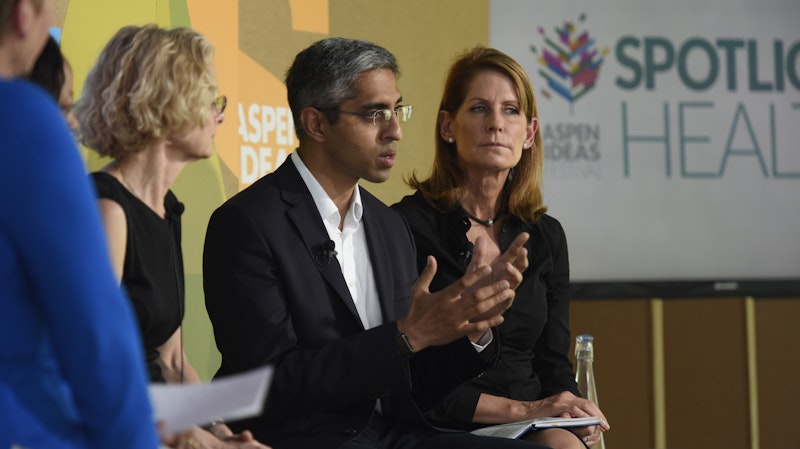
Deep Dive: The Opioid Tsunami
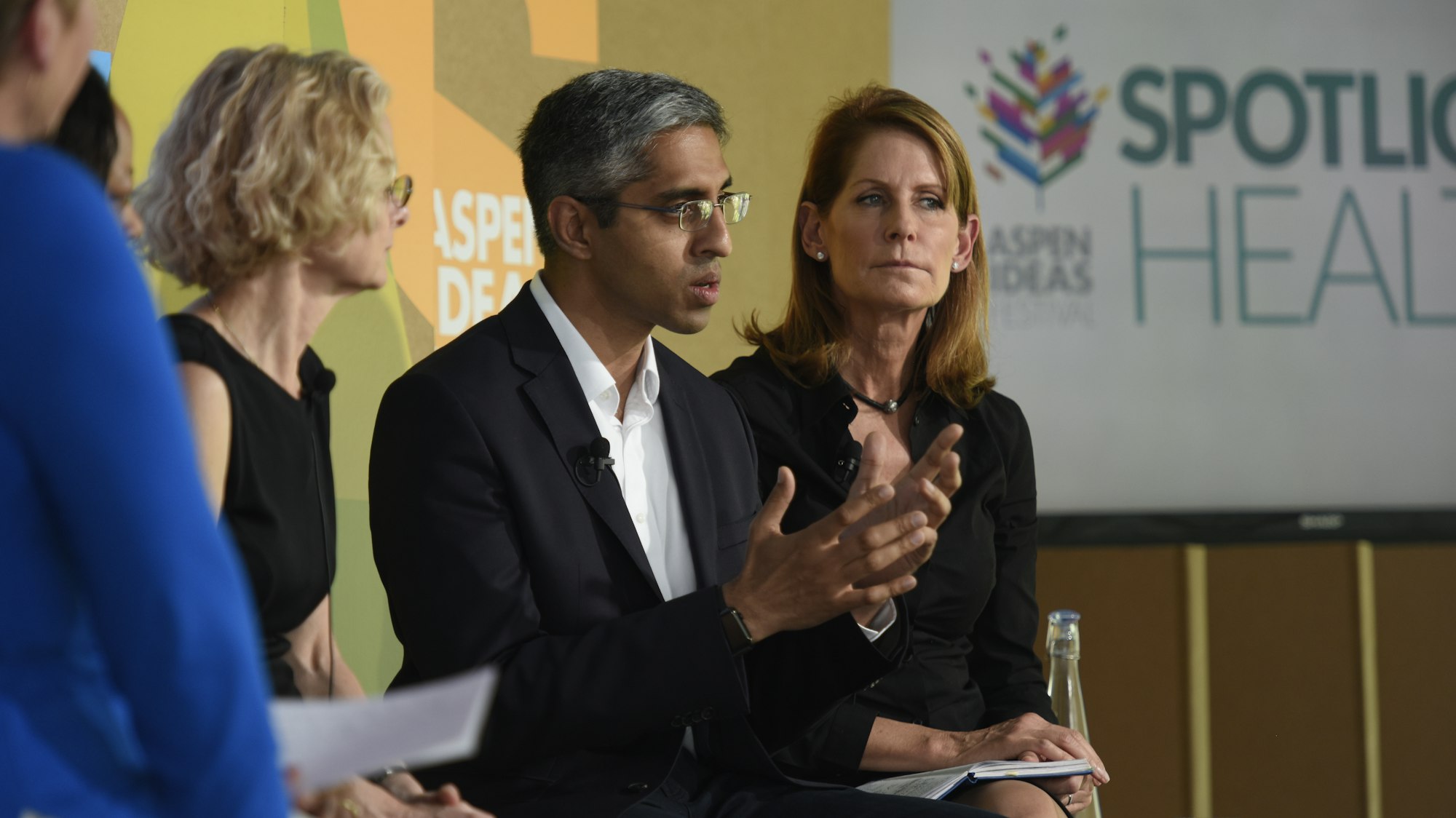
The opioid epidemic, and addiction more broadly, have become the defining public health crisis of our generation.
Full Session

Setup
Opioids are responsible for the worst drug epidemic ever to hit the United States. Shockingly, it is also the first one to have been “generated in the health care system,” says Nora Volkow. As physicians struggled to help patients suffering chronic pain, the pharmaceutical industry heavily promoted opioids and downplayed their abuse potential. Overdose deaths have risen steadily, quadrupling in the U.S. since 1999 as prescriptions soared.
The bright spot here is that addiction is increasingly recognized as a medical, not a criminal problem — a disease of the brain, not a disease of choice — and there are treatments that work.
Speakers
-
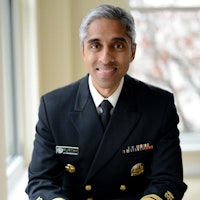 Vivek MurthyU.S. Surgeon General at the U.S. Department of Health and Human Servic...
Vivek MurthyU.S. Surgeon General at the U.S. Department of Health and Human Servic... -
 Nora VolkowDirector, National Institute on Drug Abuse, National Institutes of Hea...
Nora VolkowDirector, National Institute on Drug Abuse, National Institutes of Hea... -
 Perri PeltzDocumentary Filmmaker
Perri PeltzDocumentary Filmmaker -
 Jackie JuddCommunications Consultant
Jackie JuddCommunications Consultant -
 Yasmin HurdWard-Coleman Chair in Translational Research and Director, Addictive I...
Yasmin HurdWard-Coleman Chair in Translational Research and Director, Addictive I...
- 2017 Health
Understanding opioids and the scope of the epidemic
Opioids include both prescription drugs, such as percocet and oxycontin, and illicit substances like heroin and fentanyl, which act on receptors in the brain to diminish pain and promote euphoria.
By the numbers
Why are opioids so addictive?
Yasmin Hurd explains the neurobiology of addiction. Addiction can result from the ability of opioids to pass the blood-brain barrier, bind rapidly to receptors in the brain, and trigger a signaling cascade in the cells.
Who knew?
Preventing addiction requires treating both emotional and physical pain
In a journey across the U.S., Murthy realized that an epidemic of chronic stress is causing deep emotional pain. Yet doctors who fail to find a physical cause for someone’s health complaint too often dismiss the symptoms as “just in your head.”
Murthy says that misses a central truth. “You can experience emotional pain as physical pain. What is in your head is very real and it can influence your perception of pain.”
We know how to treat opioid addiction— but we’re not doing enough of it
Nora Volkow describes three classes of drugs that provide effective treatment for opioid addiction. “When you treat opioid use disorder with any one of these medications you not only decrease the consumption of heroin or the opioid, you actually prevent overdoses, you prevent criminal behavior, you prevent them from recycling back into the prison system, and you improve the outcomes on your neonatal abstinence syndrome.”
Yet these treatments are underused, says Volkow. One reason is the stigma associated with their use, with some people arguing they just substitute one medication for another.
Another is the lack of infrastructure — there simply aren’t enough treatment programs to care for all of those who are addicted to opioids. Insurance gaps are also an obstacle.
Big IdeaThe health care system has always lagged behind in not considering addiction part of their responsibility, of not seeing it as a disease that they should be treating and screening.Nora Volkow
Can marijuana help treat opioid addiction?
Leading in to a discussion about the promise of marijuana to combat opioid use, Hurd reminds us that “an epidemic calls for a different way of thinking.” Pilot studies suggest that the cannabinoids in the plant appear to decrease heroin-seeking behavior and possibly alcohol abuse. Unlike the THC in marijuana, cannabinoids do not have a rewarding effect.
Murthy underscores the importance of science to drive decision making about the use of marijuana, but observes that the federal government still restricts research.
Regulating marijuana to treat opioid addiction
Learn More
Additional Information
Resources
Warning: The Drug May Kill You
Confronting Our Nation’s Opioid Crisis, A Report of the Aspen Health Strategy Group
Explore More
Arts

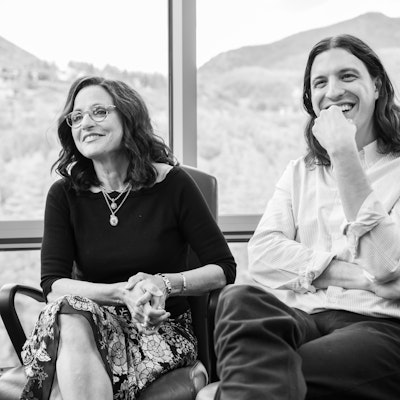
Julia Louis-Dreyfus has kept us laughing for years in her roles as Elaine Benes in “Seinfeld” and Selina Meyer in “Veep.” But her most recent work has her shifting from comedy...


It’s a tough time to try and express the complexity of life honestly. Writer Chimamanda Ngozi Adichie doesn’t shy away from truth-telling and believes we should all step up an...


Creativity is as intrinsic to our species as any of our basic instincts, says Debbie Millman, designer and curator. But for millions of people in the United States, the abilit...


The entertainment industry has had to pivot and refresh time and again to adapt to constant changes in format, business models and attention spans. Somehow, producer Brian Gra...


Millions of children across America don’t have art classes in school and don’t grow up going to art museums and galleries. They might be hours away from the closest museum, or...

October is National Book Month, and we’re celebrating by looking back at some of our favorite conversations about reading and writing from the Aspen Ideas Festival and Aspen I...

Jump in by watching our 15 most popular talks of all time. From black holes to jazz and civil rights to psychology hacks, we've collected the talks that remain audience favori...

The arts are not just forms of expression, but powerful forces that shape culture and the human experience, both reflecting and influencing our world. Join renowned artists, w...

As one of the foremost reporters of his generation, Nicholas Kristof has been witness to century-defining events and atrocities around the world. How has he managed to weaponi...
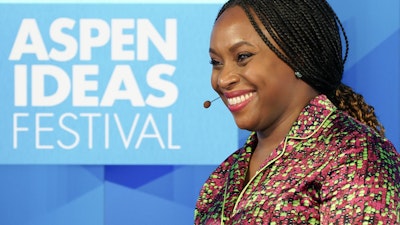

Amid seismic shifts in the entertainment world, Oscar-, Golden Globe- and Emmy-winning Brian Grazer has managed to keep pivoting to new ways to tell stories in movies, TV and...

In the last 30 years, conglomerates from Amazon to Netflix to Spotify have changed the way we interact with media, books, fashion and music. Creatives are struggling to mainta...

Images communicate truths, and also lies. Learning to pay attention to photographs can help us discern. An art and cultural historian and a visual artist host a master class o...

Hurray for the Riff Raff is more than Alynda Segarra’s musical moniker; they spent their youth hopping trains across America, capturing that life in youthful poetry then and a...

When people in prison are given creative outlets, the impact is life-changing. Hear from a hip-hop artist setting up prison recording studios, an architect designing more huma...

Whether as Elaine Benes from “Seinfeld” or Selina Meyer from “Veep,” Julia Louis-Dreyfus delivers laughter. But in the upcoming film “Tuesday,” she communicates with death — i...
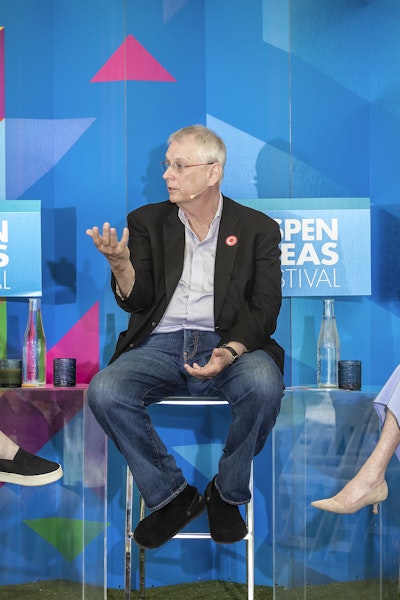
You may not know what typeface this sentence is written in, but typography is crucial to how we convey, process and retain information. How has the form evolved? Hear from des...

Maybe all of us feel like we’ve been raised by Hollywood, but being raised in Hollywood is a different kind of drama. Actor, producer and director Griffin Dunne joins friend (...

Here’s a radical proposal: Make access to the arts free for everyone. Leaders on a mission to bring Americans into art spaces discuss the transformative power of the arts, and...

Rosalind, Viola, Portia and Beatrice are unforgettable roles in Shakespeare’s plays. But there were real women behind these characters — women who spoke out against patriarchy...









